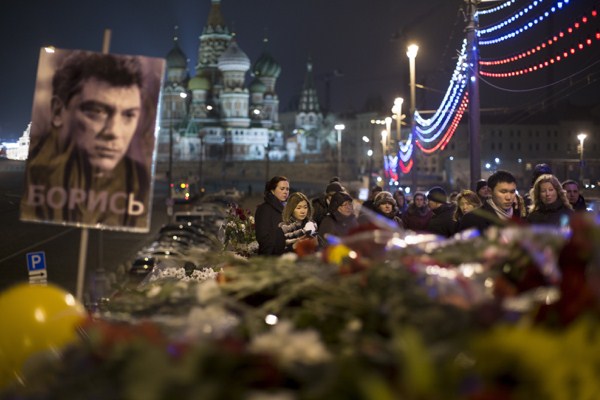The assassination last week of Boris Nemtsov, a former Russian deputy prime minister and opposition political leader, in downtown Moscow, just a stone’s throw from the Kremlin, presents a challenge for Washington. The current tensions in U.S.-Russia relations over crises ranging from Ukraine to Syria make a successful engagement with Moscow on human rights even more unlikely. Yet the U.S. must somehow find ways to support the democratic vision for Russia advocated by Nemstov and other political and civil society activists.
Nemstov’s murder is in some ways reminiscent of 1990s-era Russia under then-President Boris Yeltsin. At the time, law and order had broken down on many levels, with an increase in assassinations being one prominent illustration. Many of these murders involved business deals gone awry, as in the absence of a functioning court system at the time, commercial disputes were routinely settled through coercion. Ironically perhaps, given the current state of rule of law in Russia, President Vladimir Putin initially won popularity in part for cracking down on such violent crimes in Moscow and other major Russian cities, as well as for boosting Russia’s economy and global status.
If Putin’s human rights record has always been problematic, his post-2010 presidency has seen increased constraints on Russians’ freedom of expression, assembly and access to the media. Russian authorities regularly harass the political opposition and other independent civil society actors. The government has adopted legislation to criminalize actions designed to “insult religious feelings” or that “promote lesbian, gay and transsexual values.” And a new law has designated all Russian civil society activists receiving any foreign funding as “foreign agents,” even when they pursue nonpolitical goals like environmental protection.

